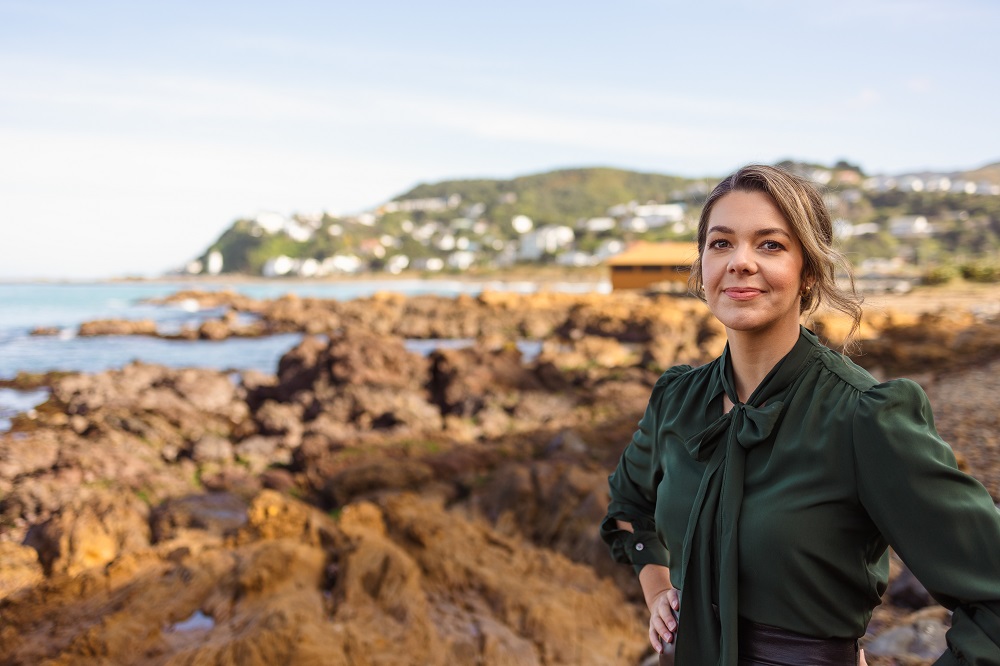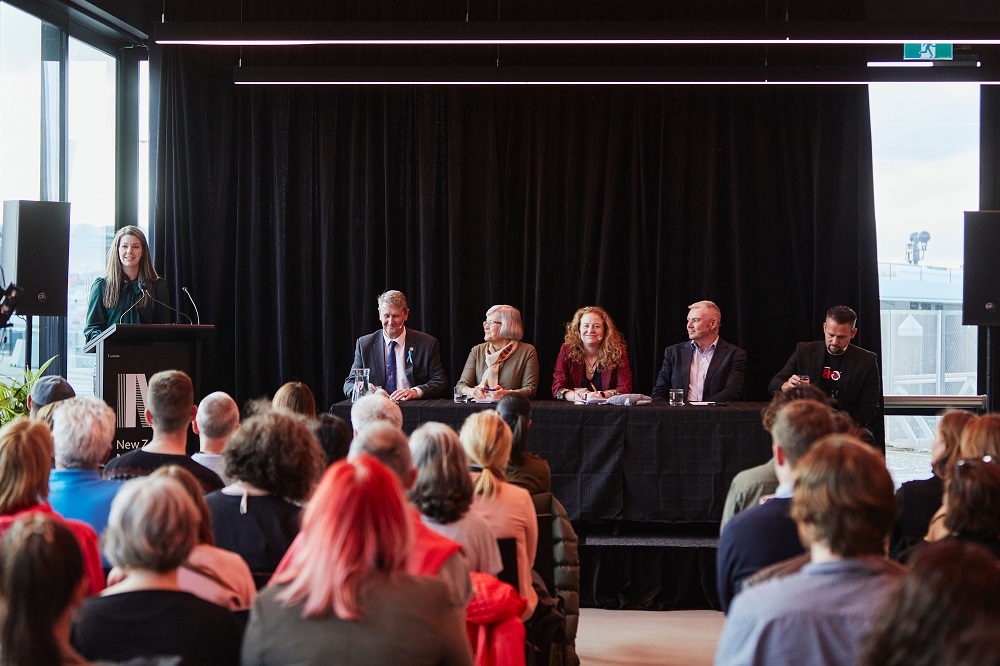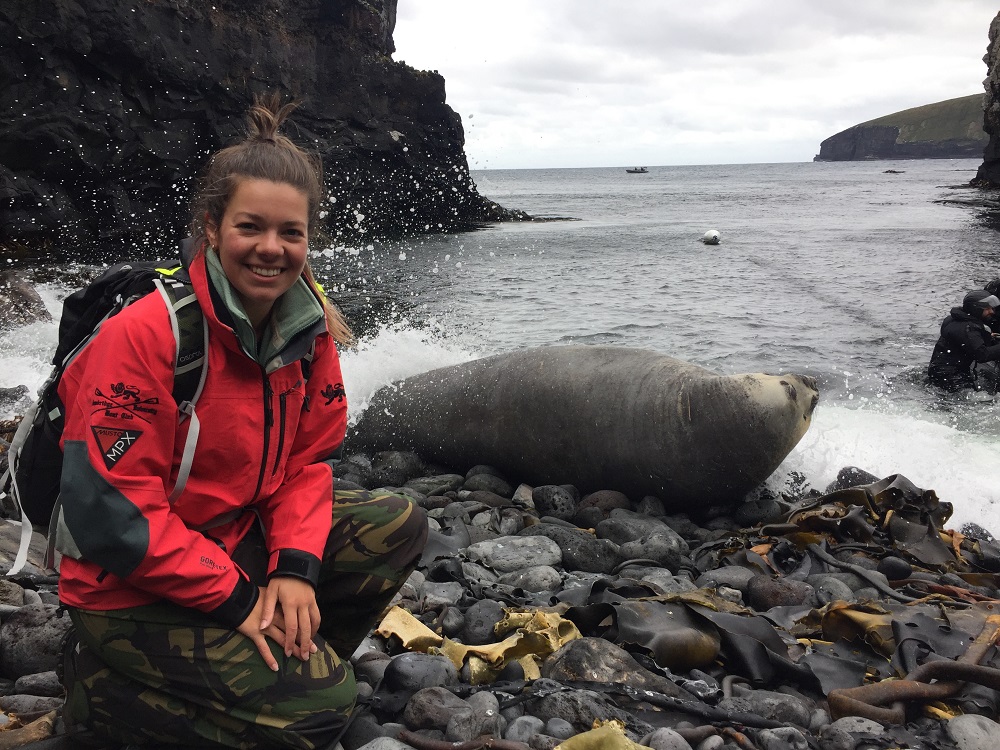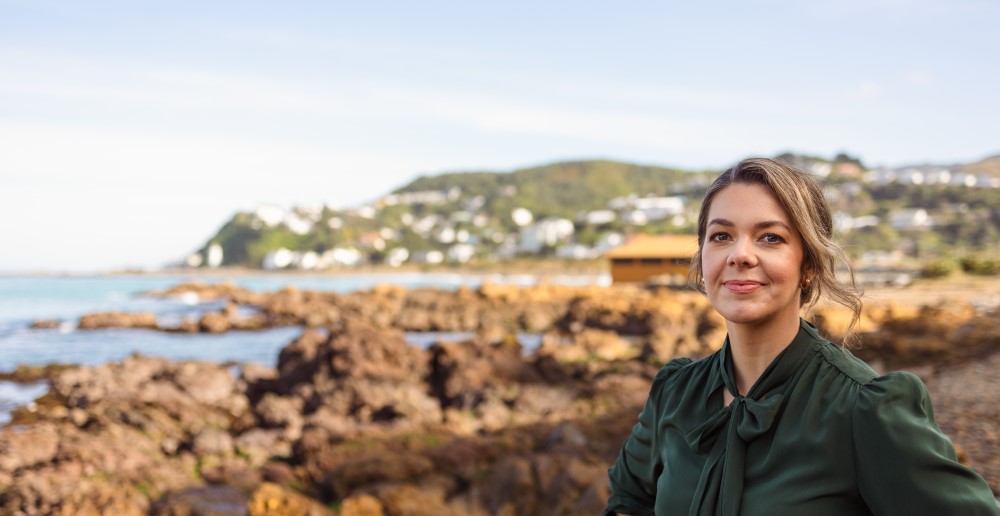Kayla Kingdon-Bebb (2008) is Chief Executive Officer of WWF-New Zealand. She has formerly worked for the New Zealand Ministry for the Environment and the Department of Conservation. She has a professional interest in Indigenous rights and extensive experience as an environmental policy leader, manager and advocate.
Growing up in British Columbia with a father who worked in forestry, I never imagined that I’d someday lead an environmental NGO. For most of my childhood, our family car sported a bumper sticker that read, ‘Hug a logger, you’ll never go back to trees’.
The trajectory of my career has largely been determined by two things: irrepressible curiosity and a desire to create positive change.
After leaving secondary school, I initially struggled to choose a subject for undergraduate study. I ultimately enrolled in business school while taking on a second, concurrent degree to have exposure to a wider range of subjects. From Chinese history to development ethics, I realised the power of curiosity lies in its potential to yield cross-pollination.
Through this process of exploration – and a fortuitous scheduling mishap while on an exchange in Taiwan – I ended up focusing my second degree on Indigenous studies. Addressing the ongoing injustices of colonisation became, and remains, a major thread in my career.
After completing my undergraduate degrees, I decided to spend a year working in Indigenous services to see if the field was viable for me. I worked a series of temporary jobs before applying for a role facilitating the development of the Moose Cree First Nation’s constitution. The heartbreak of missing out on that role to another candidate gave me an incredible gift: I gained clarity on what I wanted to do and what was important to me.

This spurred a move to the UK, where I took up an MPhil at Cambridge studying the application of legal personhood in the law-making functions of the Nisga’a Nation, Canada’s first modern Treaty nation.
My research evolved into a PhD focused on Nisga’a natural resource management policy and practice, and examined the interaction of Indigenous and colonial law in that context. Perhaps unsurprisingly, I did not complete my PhD in three years (due only in part to the time I devoted to coxing the LMBC first men’s boat). And, in 2012, I moved to Aotearoa New Zealand with my now-husband (and former LMBC Captain) Matt O’Connor (2005).
I attempted to finish my PhD thesis as a visiting scholar at Victoria University of Wellington and was becoming increasingly despondent (and broke). While indulging myself with an espresso, I discovered a newspaper article discussing a legal claim that the New Zealand Māori Council (a statutory body representative of the Indigenous peoples of New Zealand) was making with respect to the treatment of Māori rights and interests in freshwater in government policy.
I was immediately interested, and deciding a break from the PhD ‘valley of despair’ was in order, I applied for a role at NZ’s Ministry for the Environment to work on the issue. I was successful, and thus began my career in public service: in a role situated at the nexus of Indigenous rights and environmental sustainability.
I found that I loved working on public policy – I mean, really loved it – and the transformational work we delivered to address Māori rights and interests in freshwater management remains one of the highlights of my career.
In December 2018 the Supreme Court of New Zealand took a once-in-a-generation decision on the strength and application of the Treaty clause (i.e. the clause pertaining to the right of Māori) in the Conservation Act 1987. I took on a role leading the team responsible for shaping the Crown’s response.
An enduring lesson is that whether you’re in Zambia or New Zealand, you cannot begin to grapple with any conservation or environmental issue without first countenancing the matter of Indigenous rights.
Around the same time, I was appointed to an expert working group responsible for developing a plan for New Zealand’s implementation of the UN Declaration on the Rights of Indigenous Peoples. In time, the report our group produced (‘He Puapua’, or ‘a break in the waves’) emerged as one of the most politically explosive reports of the past decade.
After a decade in the public service, and having had the experience of co-authoring a report of which I was extremely proud – but could not publicly defend – I decided it might be time for a change.
I had been impressed with the global advocacy efforts of WWF in the negotiation of the Kunming-Montreal Global Biodiversity Framework, a landmark agreement to halt nature’s decline. When the opportunity arose to step in as Chief Executive of WWF-New Zealand, I jumped at it.

Like many charities WWF-New Zealand had a difficult time during the pandemic, and on my first day I discovered an organisation grappling with significant challenges. I suppose it’s also fair to say that a theme of my career has been a penchant for roles with steep learning curves!
But, seven months on, I’m feeling optimistic about what WWF-New Zealand can achieve in the years ahead.
Our focus at WWF-New Zealand can be broken down to two key goals: achieving greater protection for our ocean, and accelerating action at the nexus of climate change and biodiversity loss.
Nature is being lost more rapidly now than at any time in human history. New Zealand continues to experience some of the highest rates of species loss in the world, with more than 4,000 of our native species threatened or at risk of extinction.
The situation is particularly dire for species reliant on the marine environment. A third of seabirds in New Zealand are not found anywhere else in the world, yet ninety per cent are threatened or at risk of going extinct altogether.
And less than one per cent of New Zealand’s waters are in Marine Protected Areas – one of the most important tools we have to address biodiversity decline. I’m also on a mission to convince decision-makers in New Zealand that nature needs to be at the heart of our response to climate change and that we have an opportunity to be global leaders here. From wetland restoration to tree planting, nature-based solutions are a win-win because they tackle both climate change and biodiversity loss. They can remove carbon from the atmosphere, store it and build resilience to the impacts of climate change at the same time as protecting biodiversity and achieving other wider environmental, social and economic outcomes.
Of course, the thread that’s been woven throughout my career – Indigenous rights – is central to our work at WWF. Te ao Māori (the Māori worldview) is deeply rooted in our connection to the land, and I don’t think you can begin to really grasp any environmental issue without taking Indigenous interests into account.
Our marine protection goals are also personal to me: Matt and I are lucky enough to live right across the road from one of New Zealand’s few precious marine reserves and at many weekends and on most evenings you can find me out on the water either on a paddleboard or diving.

The coast is teeming with wildlife – including over 180 species of fish – and, since it’s been a fully protected marine reserve, the recovery of threatened marine life within has been truly astonishing.
This little slice of nature on my doorstep shows how we can make a difference, and, as I step up to the helm of WWF, I’m optimistic about the potential to create positive change for the future.
You can learn more about the work of WWF-New Zealand at wwf.org.nz

